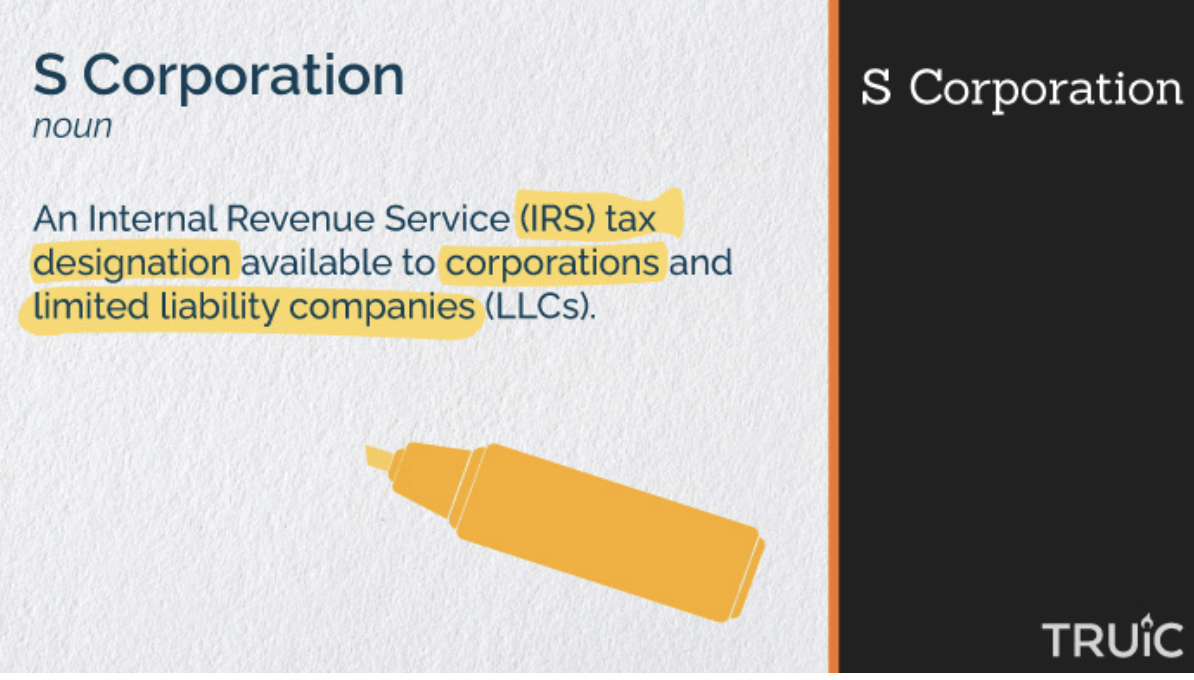The benefits of starting an S-Corporation in the U.S.
Limited Liability Companies (LLCs) are a great choice for entrepreneurs looking to incorporate their business for a number of reasons, primarily because they can choose between two tax designations to be taxed as. One of these choices is the S corp. Given the fact that S corps represent such a large proportion of corporate business receipts, it is important to understand them.
This is a tax designation created by the Internal Revenue Service (IRS) that either LLCs or corporations can choose to be recognized as. The primary benefit of S corps is that they allow businesses to eliminate the self-employment taxes they would otherwise be liable to pay. In specific circumstances, this can save a lot of money. This article will outline the basics of S corps before establishing their advantages and how to form one.
What Is an S Corp?
Put simply, an S corp is a way of being taxed provided by the IRS that LLCs and corporations can select for themselves. Under this tax designation, a business will be taxed as a pass-through entity, meaning it will be exempt from paying corporation tax.
Instead, the profits generated by the company ‘pass through’ directly to its owners, who then must pay personal income tax on the salary they pay themselves. Where this differs from a standard LLC, who are also exempt from corporation tax, is that the members of S corps regarded as performing an ‘active role’ can be considered employees, thus receiving salary.
This means owners can pay less self-employment tax. By contrast, the owners of LLCs take what are known as owner’s draws in order to pay themselves (i.e. they are not salaried). As a consequence of this, they are required to pay self-employment taxes on top of personal income taxes. Therefore, electing to be taxed as an S corp allows LLCs to avoid corporation and reduce self employment tax.
It is not advised that LLCs immediately opt for this tax designation however, as it only becomes truly beneficial once the LLC has met certain requirements, which will be discussed at greater length further on in the article. In other words, it is only advantageous to choose this tax designation when these conditions have first been satisfied.
S Corp Benefits
The primary benefit of choosing to be taxed as S corp for LLC owners is the reduction in self-employment tax they will be required to pay. As mentioned earlier, the standard LLC tax designation leaves owners liable to pay self-employment tax. However, this all changes with the S corp tax structure, under which owners are only expected to pay self-employment tax on their salaried amount they earn (rather than all income).
Subsequent distributions the owners withdrawn from company profits on top of their salary are not liable to self-employment taxes. On top of this S corps are not subject to “double taxation” as C corps are.
Under this tax structure, C corps must pay “double taxation” – corporate income tax on the revenue they produce as well personal income taxes on the individual tax returns of the shareholders who claim dividends from the company’s profits. Since S corps are treated as pass-through entities, they are not required to the first of these two taxations.

How To Form an S Corp
Forming an S corp is very simple, it merely requires the formation of a limited liability company and then a filing for S corp status with the IRS alongside a request for your business’s Employer Identification Number (EIN) as part of the standard procedure for a company’s formation.
For a business to be eligible to file for the S corp tax designation, it must satisfy the following conditions:
- The company’s shareholders are not permitted to be partnerships or corporations
- The company is not allowed to have in excess of 100 owners
- All of a company’s owners citizens or permanent residents of the US
- The profits made by an owners are required to be allocated in accordance with ownership stake
Closing Remarks
Clearly, it is extremely beneficial for a company to elect to be taxed as an S-corporation as it allows them to greatly reduce the self-employment taxes they are required to pay.
For a more in-depth dive on s corporation definition, please refer to The Really Useful Information Company’s (TRUiC) website.





